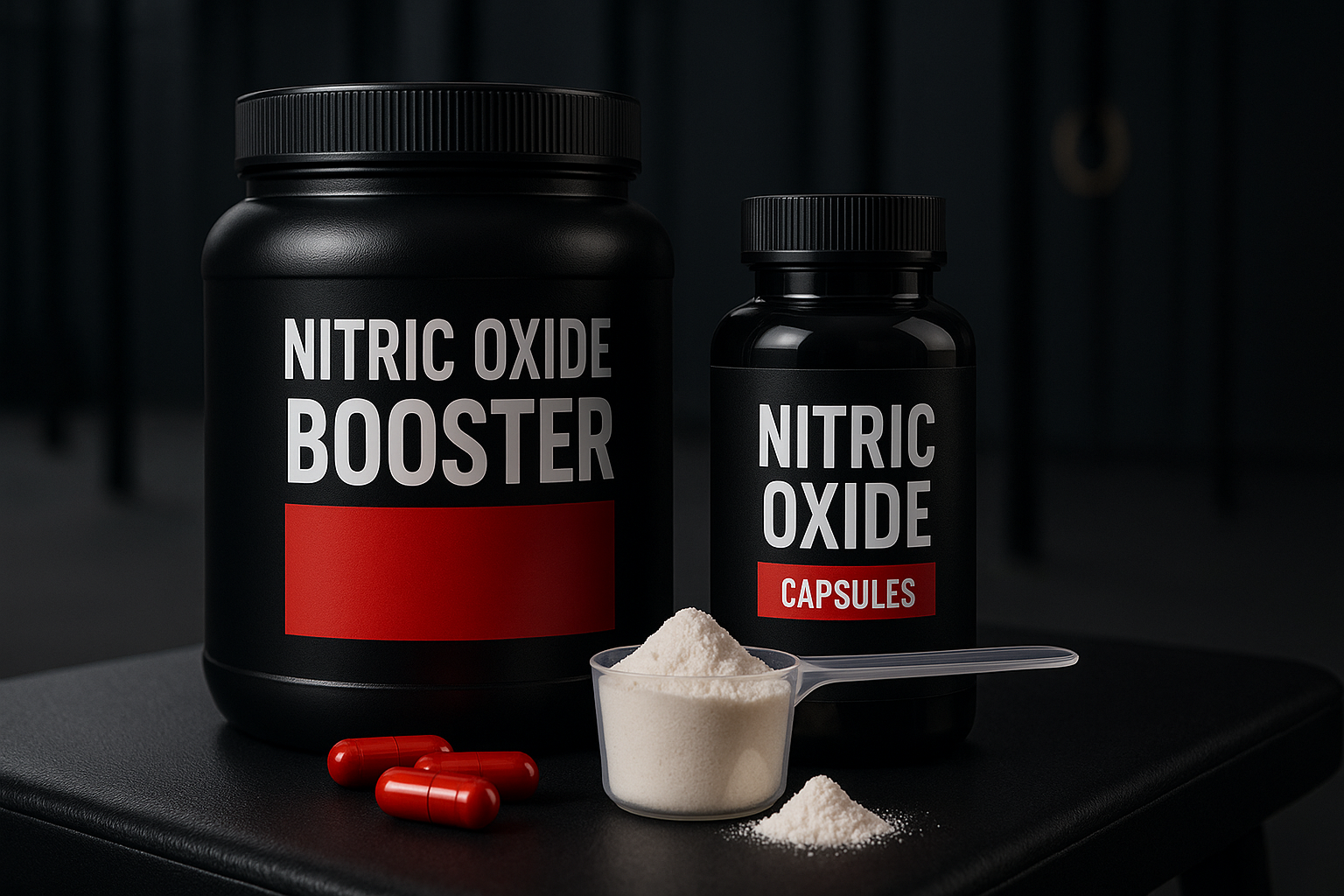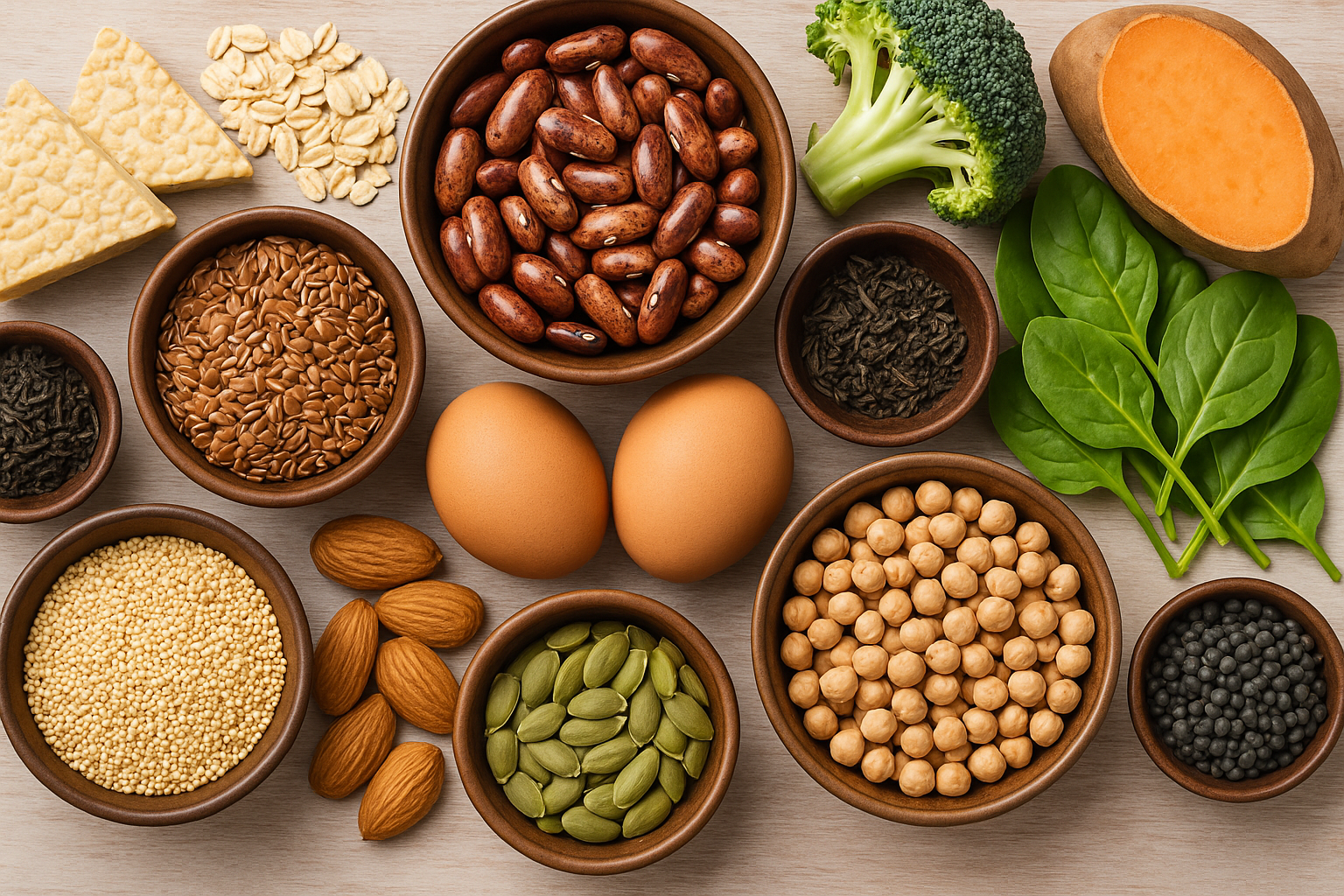Introduction
In recent years, insulin resistance has become a hot topic in health and wellness circles, and for good reason. Rising rates of prediabetes, type 2 diabetes, and obesity worldwide highlight the urgent need for effective strategies to manage and potentially reverse insulin resistance. If you’ve been wondering whether insulin resistance is a permanent condition or if it can be overcome, you’re not alone.
Here at Empowerise, we understand how important it is to stay informed and take charge of your health. That’s why we’ve compiled this comprehensive guide to clarify the causes of insulin resistance, debunk myths, and share evidence-based steps you can take to improve your metabolic health. By the end of this blog post, you’ll have a solid understanding of how insulin resistance works, and why it might not be a life sentence.
Understanding Insulin Resistance
Before diving into whether insulin resistance can be reversed, it’s crucial to understand what it is. Insulin resistance is a metabolic condition where your body’s cells become less responsive to the hormone insulin. Insulin is produced by the pancreas and plays a key role in regulating blood sugar (glucose) levels. When you eat carbohydrates, they’re broken down into glucose, which enters your bloodstream. Insulin signals your cells to absorb glucose and use it for energy.
However, when insulin resistance develops, cells don’t respond to insulin’s signal as efficiently. As a result, the pancreas needs to produce more insulin to achieve the same effect. Over time, this overproduction can lead to elevated insulin levels in the blood (hyperinsulinemia) and eventually disrupt your body’s ability to keep blood sugar in a healthy range.
Key Takeaways
- Insulin resistance is a decreased ability of cells to respond to insulin.
- The body compensates by producing more insulin, which can lead to metabolic imbalance over time.
- Addressing insulin resistance early can prevent more serious conditions, such as type 2 diabetes.
Why Does This Matter?
Insulin resistance doesn’t just affect blood sugar. It’s also associated with:
- Weight gain and obesity
- High blood pressure
- High cholesterol and triglycerides
- Fatty liver disease
- Polycystic ovary syndrome (PCOS) in women
Because insulin is integral to how your body processes and stores nutrients, resistance can disrupt multiple systems. The longer insulin resistance goes unchecked, the higher your risk for complications like heart disease, kidney problems, and nerve damage. Understanding these basics is the first step toward regaining control of your health.
How Insulin Resistance Develops
Insulin resistance doesn’t appear overnight. It usually develops gradually, influenced by a combination of genetic, dietary, and lifestyle factors. Below is a simplified overview of how the process unfolds:
- Excess Calorie Intake and Sedentary Lifestyle: Consuming more calories than you burn—especially those high in refined carbohydrates and sugars—leads to elevated glucose levels in the bloodstream. Combined with a lack of physical activity, this creates an environment ripe for insulin resistance.
- Pancreatic Overload: When blood sugar remains high for prolonged periods, the pancreas is forced to produce more insulin. Cells begin to ignore or “resist” insulin’s signals after constant exposure to high insulin levels.
- Cellular Changes: Over time, continuous high insulin can alter how receptors on cells function. These receptors become less sensitive to insulin’s message, making it harder for glucose to enter the cells.
- Elevated Insulin and Blood Sugar: If this cycle persists, both insulin and blood sugar can remain chronically high, setting the stage for prediabetes and, potentially, type 2 diabetes.
The Impact on Your Health
Insulin resistance is not just about high blood sugar; it has a ripple effect throughout your body. Here’s how it can influence various aspects of your health:
- Metabolic Syndrome: Insulin resistance is a key component of metabolic syndrome, which also includes high blood pressure, excess abdominal fat, and abnormal cholesterol levels.
- Type 2 Diabetes: Prolonged insulin resistance can exhaust the pancreas’s insulin-producing cells. Once these cells can’t keep up with the demand, blood sugar levels rise, leading to prediabetes and, eventually, type 2 diabetes.
- Cardiovascular Disease: Elevated insulin and blood sugar levels can damage the lining of blood vessels, increasing the risk of atherosclerosis (plaque buildup), high blood pressure, and heart attacks.
- Kidney Health: High blood sugar strains the kidneys, potentially leading to chronic kidney disease.
- Neuropathy: Over time, uncontrolled blood sugar can damage nerves, causing tingling or numbness in the extremities—a condition known as neuropathy.
- Inflammation: Insulin resistance often goes hand in hand with chronic, low-grade inflammation. Inflammation is a known driver of many chronic diseases, including certain forms of cancer.
These conditions may sound dire, but it’s important to remember that insulin resistance exists on a spectrum. Early intervention and sustained lifestyle modifications can make a massive difference in preventing progression.
Key Factors Contributing to Insulin Resistance
No two individuals are exactly alike, and the factors contributing to insulin resistance can vary from person to person. However, common threads do exist:
- Dietary Habits
Diets high in processed foods, sugary beverages, and refined carbohydrates tend to spike blood sugar levels rapidly, overwhelming the body’s insulin response. - Physical Inactivity
A sedentary lifestyle reduces the body’s ability to burn glucose for fuel, increasing the burden on insulin to manage blood sugar. Exercise helps improve insulin sensitivity by using glucose more efficiently. - Excess Body Weight
Carrying extra weight, especially around the abdomen, is closely linked to insulin resistance. Adipose (fat) tissue can release inflammatory markers and hormones that impair insulin signaling. - Chronic Stress
Stress triggers the release of cortisol, which can lead to increased blood sugar. Over time, chronic stress can exacerbate insulin resistance. - Poor Sleep
Lack of quality sleep disrupts hormones like leptin and ghrelin, which regulate hunger and metabolism. Poor sleep patterns can also affect how your cells respond to insulin. - Genetics and Family History
Some individuals are genetically predisposed to insulin resistance, though lifestyle factors often play a significant role in its manifestation.
Can Insulin Resistance Be Reversed?
Now for the question on everyone’s mind: Can insulin resistance be reversed? The short answer is yes—in many cases, it can be significantly improved and even reversed through targeted dietary, lifestyle, and sometimes medical interventions. While genetics can influence how easily you might improve your insulin sensitivity, many aspects of metabolic health are well within your control.
What Does “Reversal” Really Mean?
When we say “reverse” insulin resistance, we mean significantly improving the body’s sensitivity to insulin to the point where blood sugar and insulin levels return to a healthier range.
One of the most encouraging developments in medical research over the past decade has been the growing consensus that insulin resistance can often be reversed or significantly improved. According to reputable organizations such as the National Institutes of Health (NIH), losing even a modest amount of weight (5-7% of your body weight) and engaging in regular physical activity can drastically improve insulin sensitivity.
How Does Reversal Happen?
- Reduced Fat Mass
Losing fat, especially visceral fat, improves insulin’s ability to do its job. When your body stores less fat around critical organs, it reduces inflammatory signals that interfere with insulin signaling. - Improved Muscle Function
Exercise increases insulin sensitivity by stimulating glucose uptake in muscle cells. This effect can last for hours or even days after a workout, creating a positive feedback loop: the more you move, the better your body handles glucose. - Regulated Hormonal Environment
Stress reduction, adequate sleep, and balanced hormonal function (especially cortisol and sex hormones) all play a role in optimizing insulin sensitivity. - Restored Pancreatic Function
In the early to middle stages of insulin resistance, the pancreas is still able to produce insulin, it’s just overworked. By reducing the demand through lifestyle changes, you allow your pancreas to function more efficiently over time.
Is It Permanent?
It’s crucial to note that reversing insulin resistance doesn’t equate to being “cured” for life. If you revert to old habits (poor diet, inactivity, chronic stress), insulin resistance can reoccur. A long-term commitment to healthy lifestyle choices is key for lasting success.
Strategies to Reverse Insulin Resistance
Reversing insulin resistance often requires a multi-pronged approach. Below are evidence-based strategies that have shown promise in improving insulin sensitivity and overall metabolic health.
1- Nutrition: Focus on Whole Foods
Your daily diet is one of the most powerful tools you have in the fight against insulin resistance. Emphasize whole, nutrient-dense foods:
- High-fiber vegetables (broccoli, spinach, kale)
- Lean proteins (chicken, turkey, fish, tofu)
- Whole grains (oats, quinoa, brown rice)
- Healthy fats (avocados, nuts, seeds, olive oil)
Tips for an Insulin-Smart Diet:
- Reduce refined carbohydrates: Cut down on white bread, pastries, sugary drinks, and other high-glycemic foods.
- Increase dietary fiber: Fiber helps stabilize blood sugar by slowing glucose absorption.
- Balance macronutrients: Include protein and healthy fats to slow digestion and prevent rapid spikes in blood sugar.
- Avoid extreme calorie deficits: Undereating can stress the body and disrupt hormonal balance, sometimes worsening insulin resistance.
For more detailed nutritional guidelines, you can visit reputable sources like the Harvard T.H. Chan School of Public Health for research-backed dietary recommendations.
2- Regular Physical Activity
Physical activity is a cornerstone in managing and reversing insulin resistance. When you exercise, your muscles use glucose as fuel, which can help reduce blood sugar levels and improve insulin sensitivity over time.
- Aerobic Exercise: Activities such as brisk walking, cycling, or swimming can improve cardiovascular health and increase insulin sensitivity. Aim for at least 150 minutes of moderate-intensity aerobic exercise per week.
- Resistance Training: Building lean muscle mass through activities like weightlifting or bodyweight exercises (push-ups, squats) can help your body process glucose more efficiently. Aim for 2–3 sessions per week targeting different muscle groups.
- High-Intensity Interval Training (HIIT): Short bursts of intense activity followed by rest periods can also be beneficial.
3- Stress Management
Chronic stress elevates cortisol levels, which can lead to increased blood sugar and heightened insulin resistance. Finding ways to manage stress effectively is crucial:
- Mindfulness and Meditation: Practices like deep breathing exercises, yoga, or guided imagery can help lower stress hormones.
- Adequate Rest: Schedule downtime to relax and engage in hobbies that help you recharge.
- Therapeutic Techniques: Cognitive-behavioral therapy (CBT) or counseling can provide tools for coping with chronic stress or anxiety.
4- Prioritize Quality Sleep
Sleep is often overlooked but is vital for maintaining hormonal balance, including insulin regulation. Aim for 7–9 hours of uninterrupted sleep per night.
- Consistent Sleep Schedule: Go to bed and wake up at the same time each day.
- Sleep-Friendly Environment: Keep your room cool, dark, and quiet. Avoid screen time at least 30 minutes before bed.
- Avoid Stimulants: Limit caffeine and alcohol, especially in the evenings.
5- Smoking Cessation
- Positive Impact on Metabolic Health: Smoking has been linked to insulin resistance, and quitting smoking can improve overall metabolic health. Seek professional help if needed, from therapy to nicotine replacement methods.
6- Supplements and Medications
In some cases, dietary and lifestyle changes alone may not be sufficient to fully reverse insulin resistance. Certain supplements and medications can assist:
- Metformin: Commonly prescribed for prediabetes and type 2 diabetes, it helps reduce glucose production in the liver and improves insulin sensitivity.
- Omega-3 Fatty Acids: Found in fish oil and flaxseed, these can help reduce inflammation, which is often linked to insulin resistance. You can find the study here.
- Magnesium: Some research suggests that adequate magnesium intake may support healthier insulin function.
- Berberine and Curcumin: Emerging research suggests berberine may help lower blood sugar and improve insulin sensitivity. Always consult a healthcare provider before adding new supplements to your regimen.
Always consult a healthcare provider before starting any supplement or medication to ensure it’s appropriate for your specific condition.
The Role of a Coach in Reversing Insulin Resistance
Reversing insulin resistance involves more than just knowing what to do; it requires consistent, sustained action. This is where professional guidance through a coach can be invaluable. Our coaches specialize in personalized strategies to help you implement nutrition plans, exercise routines, and stress management techniques tailored to your unique needs.
At Empowerise, our transformation coaching is designed to:
- Provide one-on-one support and accountability.
- Offer customized meal plans that suit your lifestyle and preferences.
- Create exercise regimens that match your fitness level and goals.
- Teach effective stress-management tools.
- Track and analyze progress to make data-driven adjustments.
By enrolling in our coaching program, you’ll gain the support system you need to make lasting changes. We believe in a collaborative approach, where your input and experiences guide the strategies we implement. The result is a program that not only helps reverse insulin resistance but also sets the stage for lifelong health.
We also employ advanced strategies and further personalization through our genetic testing, with which you can discover your genetical predispositions.
Success Stories and Realistic Expectations
At Empowerise, we’ve witnessed incredible transformations. Clients who once struggled with persistent weight gain, unstable energy levels, and alarming lab results have reclaimed their health through targeted strategies. These stories underscore that while reversing insulin resistance is absolutely possible, it’s not an overnight fix. Consistency, patience, and expert guidance make all the difference.
It’s important to set realistic goals. If your insulin resistance is in its early stages, you might see dramatic improvements relatively quickly by incorporating dietary shifts, exercise, and better sleep. If you’re already dealing with complications or a longstanding history of insulin resistance, the process may be more gradual. In either case, every positive change you make, no matter how small, brings you one step closer to better health.
Common Misconceptions About Insulin Resistance
Despite the growing awareness of insulin resistance, several misconceptions still cloud the topic. Clarifying these can help you better understand what reversing insulin resistance entails:
- “Insulin resistance only affects people who are overweight.”
While excess body weight is a risk factor, even normal-weight individuals can develop insulin resistance if they have a poor diet, are physically inactive, or have a genetic predisposition. - “Once you have insulin resistance, you’ll inevitably develop diabetes.”
Insulin resistance significantly raises the risk of type 2 diabetes, but it’s not a foregone conclusion. Early intervention can prevent or delay the progression to full-blown diabetes. - “Carbs are the enemy.”
Not all carbs are created equal. Whole grains, vegetables, and legumes are nutrient-dense and have a lower glycemic load, helping stabilize blood sugar levels. The real issue is refined, high-sugar carbohydrates. - “Reversing insulin resistance requires a restrictive diet.”
While certain dietary changes are necessary, they don’t have to be overly restrictive. Balanced eating habits that emphasize nutrient density and moderating refined sugars can effectively improve insulin sensitivity without extreme measures. - “Medication alone can fix insulin resistance.”
Medication can assist, but lifestyle modifications remain the cornerstone of improving metabolic health. Relying solely on medications without addressing underlying habits typically yields suboptimal results.
Scientific Backing and Reputable Sources
Numerous studies and health organizations confirm that lifestyle modifications can make a significant impact on reversing or managing insulin resistance. According to the National Institute of Diabetes and Digestive and Kidney Diseases (NIDDK), weight management, physical activity, and dietary changes are pivotal in improving insulin sensitivity. Peer-reviewed research also supports the crucial roles of stress reduction and adequate sleep in metabolic health.
By referring to reputable medical journals and authoritative health institutions, you can find detailed evidence supporting each of the strategies outlined in this post. Always ensure that the information you rely on is backed by scientific consensus or high-quality clinical studies.
Conclusion: Take Charge of Your Metabolic Health
In many cases, insulin resistance can be reversed through strategic lifestyle changes, targeted dietary adjustments, regular exercise, stress management, and quality sleep. While the road to improved metabolic health may seem challenging, it’s far from impossible. The key is consistency and a willingness to adapt your habits over the long term.
Here at Empowerise, we believe in giving you the tools and support you need to succeed. Our health coaching programs are designed to help you make sustainable changes that improve insulin sensitivity, regulate blood sugar, and promote overall health. Whether you’re just beginning your journey or looking to fine-tune your health strategy, our expert coaches can guide you every step of the way.
Ready to transform your health and reverse insulin resistance?
- Enroll in our coaching program to get personalized guidance, accountability, and a structured plan tailored to your specific needs.
- Take the first step toward a healthier, more empowered life. Let’s work together to make insulin resistance a thing of the past.
Final Thoughts
Remember, reversing insulin resistance isn’t a one-size-fits-all process. It demands a holistic approach that addresses nutrition, physical activity, sleep, stress, and more. By staying informed, using reputable sources, and seeking professional support, you can confidently navigate the path to better metabolic health.
The journey may be long, but with the right resources and mindset, it’s entirely within your reach. And with Empowerise at your side, you won’t have to do it alone.






